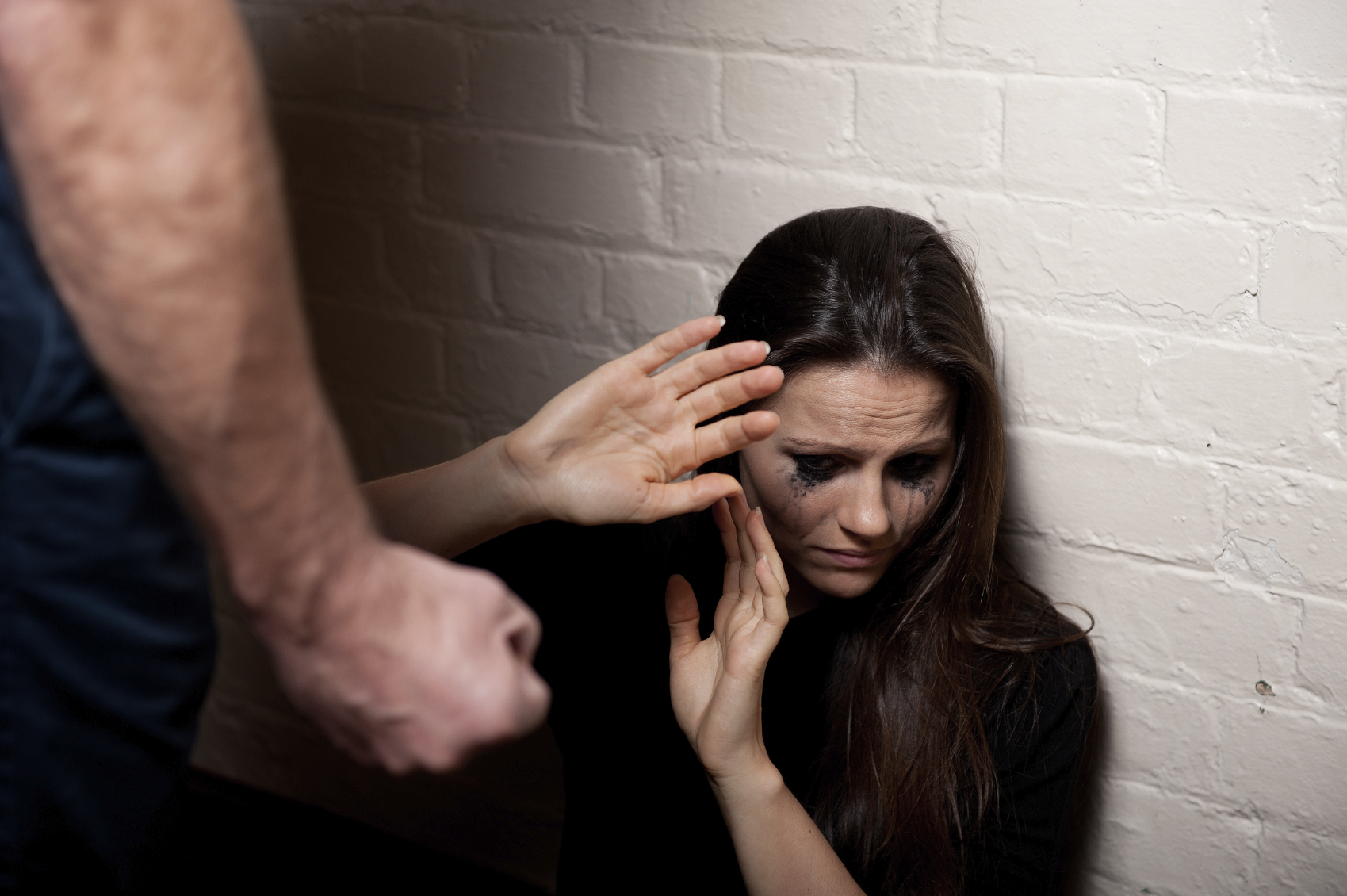
Domestic violence plays a significant role in California family law proceedings. Vikas Bajaj, a criminal defense attorney in San Diego, CA, provides an overview of domestic abuse laws for your convenience.
Violence or threats of violence against others are, generally, criminal acts that are punishable by law. The State of California has taken serious steps to protect victims of these crimes who happen to be closely related to the (alleged) attacker. Domestic violence laws in California substantially elevate the severity of the crime(s) and related punishment(s)s for those convicted.
Domestic violence allegations are taken very seriously in California. Charges are pursued by prosecutors who specialize in domestic violence litigation in dedicated prosecution units across the state. These special units were set up to provide additional protection for victims of domestic violence who may feel threatened by their attacker if they pursue legal recourse. As a result, when cases reach these dedicated units they often move forward, even if defendants recant, change their story, or express reservations in pressing charges.
Contents
What Constitutes Abuse in California?
In California, abuse can take many forms. Many may equate physical violence with abuse but, in reality, actions that constitute “abuse” for the purposes of the law are expansive. According to California law, abuse can include:
- Physically hurting or trying to hurt someone, either intentionally or recklessly;
- Sexual assault;
- Inflicting emotional, verbal, or psychological distress;
- Making someone fearful for their imminent or future safety;
- Harassing, stalking, or threatening someone; and/or
- Disturbing another’s peace or vandalizing their personal property.
Physically hurting or trying to hurt another person is a considerably broad definition. Courts in California have found restraining someone from free movement, pulling hair, shoving, and pushing to all fall under this umbrella. Physical abuse to a family pet has also been held to fall under the definition of “abuse” in California.
When Do Domestic Violence Laws Apply?
Domestic violence laws in California were specifically engineered to protect a certain class of individuals – those victims who are closely related to their attacker. Victims of domestic violence may include:
- A (former or current) spouse or domestic partner;
- A (former or current) significant other;
- A (former or current) co-habitant;
- Co-parent of a child; or
- Other closely related party (parent, child, sibling, in-law).
California Domestic Violence Laws
California has a number of laws specifically designed to protect victims of domestic violence. These laws, in many cases, have elements similar to “traditional” crimes but impose more severe punishments on those convicted.
Corporal Injury to a Spouse or Cohabitant
This is perhaps the most common, and most inclusive, domestic violence law in California. While its formal title is “Corporal Injury to a Spouse or Cohabitant,” the charges are most commonly referred to as domestic violence, domestic abuse, or spousal abuse.
Under this law, it is illegal to inflict a ‘corporal injury’ against a spouse, cohabitant, or intimate partner which results in a traumatic condition. More plainly, it is illegal to hit or strike a (former or current) spouse, fiancé, co-habitant, or co-parent so violently as to cause visible injury of some sort. Swelling, lacerations, or bruising are all sufficient injuries.
Penalties for violation of this law vary based on the history of the accused:
- First offense. No more than 4 years in prison and/or a fine of up to $6,000. If probation is awarded the defendant may donate their fine – up to $5,000 – to a battered woman’s shelter and/or reimburse their victim for counseling, medical bills, or other costs resulting from the abuse.
- Prior Convictions. If the accused has been convicted of a serious domestic violence offense (as listed in the statute) within the past 7 years, the punishment is increased to no more than 5 years in prison and/or a fine of up to $10,000.
Domestic Battery
Domestic Battery is similar to Corporal Injury of a Spouse of Cohabitant, but does not require a visible physical injury. Inflicting violence or force against an intimate partner is a misdemeanor offense which carries a penalty of up to one year in jail and/or a fine of no more than $2,000.
Domestic Battery is a great example of how domestic violence laws elevate traditional crimes. Battery is traditionally punishable by up to 6 months in jail and/or a fine of $2,000. When the victim of a battery has a close relationship with the aggressor, however, the punishment is elevated.
Child Abuse, Child Endangerment, and Child Neglect
California also imposes strict laws designed to protect the interests, safety, and wellbeing of children.
- Child Abuse. It is illegal to inflict corporal punishment or injury on a child.
- Child Endangerment. It is illegal to allow a child under your care or custody to suffer harm or to endanger his or her safety.
- Child Neglect. It is illegal to fail to provide necessities – such as food, clothing, shelter, and medical care – to a child under your care or custody.
Crimes Related to Domestic Violence Laws
California also boasts a number of laws that often accompany charges for domestic violence, spousal battery, or child abuse. Violation of these laws can increase punishments imposed on domestic violence offenders. Common charges that accompany domestic violence allegations include:
- Elder Abuse. It is illegal to physically, emotionally, or psychologically abuse, endanger, or financially defraud a person aged 65 or older.
- Criminal Threats. It is illegal to threaten serious harm to another with the intent to cause fear of physical safety.
- Aggregated Trespass. It is illegal to make threats against another person which put them in reasonable fear for their safety, and subsequently enter their place of home or work to carry out those threats.
- Revenge Porn. It is illegal to distribute sexual images of another with the intent to harm or cause emotional distress.
If You’ve Been Convicted of Domestic Violence
Punishments for violation of domestic violence laws vary, and often hinge on the specific facts of your case, including the seriousness of the injuries inflicted, as well as your criminal record. However, California courts take domestic violence allegations very seriously, and typically impose a minimum of 30 days in jail, regardless of prior history. Many courts also champion education and counseling, and often require successful completion of intensive domestic batterers courses.[12]
Note: if you are convicted with domestic violence you may face deportation. Domestic violence offenses are considered crimes of moral turpitude and impose severe punishments on those convicted.
If You’re a Victim of Domestic Violence
As a victim of domestic violence or abuse, you have many legal rights that you can explore to protect yourself and your loved ones. If you are fearful of the violent advances or behavior of a closely related person you may request the protection of a restraining order. California provides protection for victims of domestic violence at all stages of abuse.
- Emergency Protective Order. Police called to the scene of a domestic disturbance, or by the request of a victim and in their discretion, contact a judge at any time of the day to request an ERO. The protective order, if granted, takes effect immediately and lasts for up to 7 days.
- Temporary Restraining Order. Victims of domestic violence or abuse may petition the court for a TRO by providing evidence supporting their request. If granted, the TRO provides protection for 20-25 days.
- Permanent Restraining Order. Victims of domestic violence or abuse may petition the court for a permanent restraining order by providing evidence supporting their request. Many times, permanent restraining orders are issues after criminal charges are completed. Despite their name, permanent restraining orders can only last for 3 years.
- Criminal Protective Order. Courts may issue criminal protective orders for the duration of a criminal case.
Domestic violence laws in California discourage domestic abuse, offer protections to victims, and impose harsh penalties on those convicted. The seriousness of traditional crimes are often heightened if victims are closely related or intimate partners, and those convicted can face serious repercussions for their actions. If you have been the victim of domestic abuse, or if you believe you have been falsely accused of domestic violence, contact an experienced California criminal attorney today.

